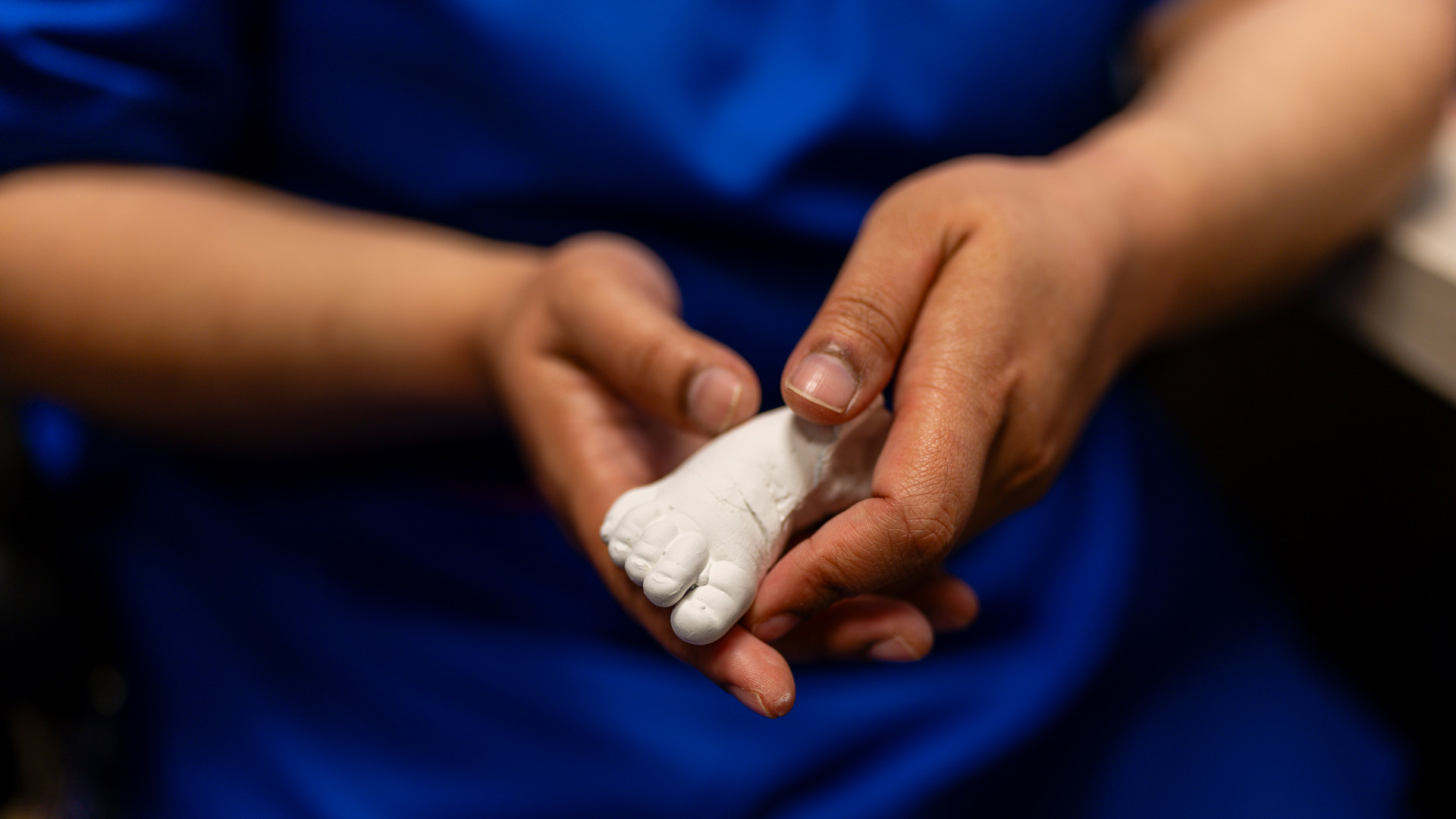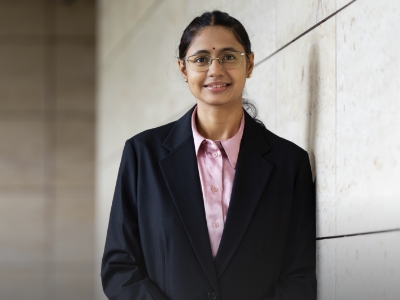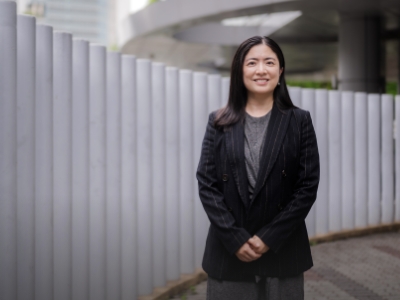The Academic Health System 1 Apr
PUBLISHED ON
SCROLL DOWN
Our special connection with NUS, gives us access to the university-wide ecosystem of expertise, talent, capabilities and infrastructure.
The three health schools – medicine, dentistry, and public health – all work closely with our clinical institutions.
This gives us the constituent DNA for scientific discovery and clinical innovation to increase our impact.
One of three public healthcare clusters in Singapore, the National University Health System (NUHS) is uniquely designed and operated to support not only the healthcare needs of today, but also the challenges that lie ahead. This includes a rise in chronic diseases due to a rapidly ageing population, which in turn, puts a strain on healthcare resources.
Here are some things to know about how NUHS is tackling future healthcare challenges and improving patient outcomes through groundbreaking innovation, seamless collaboration and a value-based approach.
NUHS doesn’t just treat patients
NUHS is part of an integrated Academic Health System — also known as an academic medical centre — which is a partnership between two or more research and healthcare entities that focuses on integrating research, clinical services, education and training. These centres have the resources and expertise to innovate and adapt the latest medical discoveries and technologies into clinical practice.
Entities under NUHS include hospitals, speciality centres, polyclinics, a medical centre, diagnostic facilities and pharmacies, and academic health sciences institutions. These include National University Hospital (NUH), Ng Teng Fong General Hospital, National University Heart Centre (NUHCS), National University Cancer Institute (NCIS), National University Polyclinics, and NUS Yong Loo Lin School of Medicine (NUS Medicine).
NUHS is focused on preventive health
As a Regional Health System, NUHS works in close collaboration with community hospitals, general practitioners, family medicine clinics, nursing homes and other community partners to provide integrated care to the community. This puts NUHS in good stead to not only identify and treat health issues early, but allows it to deliver preventive healthcare services and education for the well-being of all. This ultimately helps to increase healthspans – the period of life spent in good health.
NUHS is nurturing the next generation of healthcare professionals
With three schools — NUS Medicine includes the Alice Lee Centre for Nursing Studies; NUS Faculty of Dentistry; and NUS Saw Swee Hock School of Public Health — under its umbrella, and its provision and support of pre-employment clinical training of students island-wide, NUHS plays a key role in nurturing the next generation of healthcare professionals. The NUS schools themselves train the largest number of medical students in Singapore, and are the only nursing and public health tertiary education institutions in the country.
Everyone is an innovator at NUHS
With a combination of curiosity and a can-do spirit towards solving health and healthcare issues, NUHS team members are innovators at heart. Through collaborations with the university faculties, NUHS is able to draw upon their academic and research capabilities to develop solutions for health and healthcare needs. Its research and breakthroughs have not only enhanced patients’ lives, but also helped solve some of tomorrow’s problems today.
Ng Teng Fong General Hospital strengthens the NUHS network by expanding healthcare services and expertise, fostering collaboration, and contributing to advancements in medical research and education. Its state-of-the-art facilities and specialised care enhance the overall capabilities of the academic health system.
Alexandra Hospital plays a pivotal role in the NUHS by providing specialized healthcare services, contributing to medical research, and supporting the system's commitment to comprehensive patient care. Through collaborative efforts, it enhances NUHS's overall impact on healthcare delivery and innovation.
National University Polyclinics complement NUHS by extending accessible and quality primary healthcare services to the community. NUP and NUHS collaborate to enhance preventive care, health education, and contribute to a holistic healthcare ecosystem, promoting overall well-being and supporting the broader goals of NUHS.
SUB TITLE TEXT
Life-saving treatment for unresponsive acute lymphoblastic leukemia
Car-T Cell Therapy could give advanced cancer patients a fresh chance at recovery and life. Here, immune cells from a patient’s blood are drawn and equipped with a Chimeric Antigen Receptor (CAR-T), which activates the CAR-T cells to kill cancer cells. After undergoing the treatment at NUH’s Khoo Teck Puat - National University Children's Medical Institute in Singapore, a five-year-old boy diagnosed with an aggressive form of acute lymphoblastic leukaemia was declared cancer-free.
Co-invented by clinician innovator Prof Lawrence Ho from NUH, this pioneering robotic endoscopic operating system offers a minimally-invasive way to treat stomach cancer, thus facilitating quicker recovery.
The Endomaster, developed by NUHS, facilitates intricate surgeries without external incisions, resulting in reduced procedure time, shorter hospital stays, and faster recovery. This innovative technology exemplifies NUHS's commitment to advancing minimally invasive procedures, enhancing patient outcomes through cutting-edge surgical approaches.
SUB TITLE TEXT
Lorem ipsum dolor sit amet, consectetur adipiscing elit, sed do eiusmod tempor incididunt ut labore et dolore magna aliqua.
Gastroclear, a non-invasive and cost-effective blood-based diagnostic test that can accurately detect gastric cancer in its early stages, is a big leap in the early diagnosis of the disease. Currently being rolled out in public hospitals, private general practitioner clinics and specialist’s clinics, it holds the potential for improved patient outcomes.
SUB TITLE TEXT
Leverages AI to enhance patient outcomes by streamlining tasks, optimising resource allocation, and facilitating more accurate diagnoses through advanced data analysis.
NUHS’ healthcare artificial intelligence (AI) initiatives, hosted on the Endeavour AI platform, help doctors and clinicians serve patients better by enhancing efficiency. For instance, CalSense helps detect hypercalcemia in real time, prompting faster medical interventions. Another AI project, Pathfinder, aims to solve the healthcare crunch by providing real-time insights into waiting time and bed occupancy rates.
SUB TITLE TEXT
AI-powered system that detects abnormalities in an MRI scan within seconds, saving radiologists about 200 hours per year.
The SpineAI programme can automatically and more precisely detect spine-related diseases by accurately analysing magnetic resonance imaging images, thereby improving patients’ clinical outcomes by enabling them to swiftly get the appropriate treatment.




